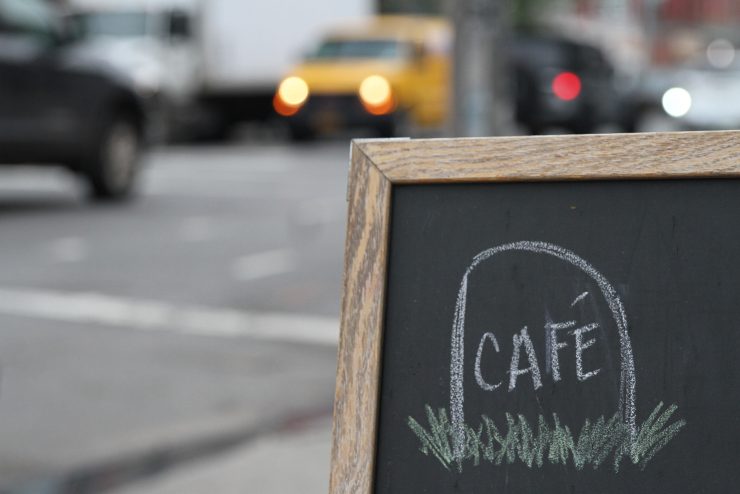
Have you found yourself at a loss for appropriate places to talk about death? Safe spaces that might include coffee, tea, or a suitable treat, and an environment of openness and free interchange of ideas on what is for many a difficult—if not impossible—subject? If you answered yes, you’ve been waiting your whole life for Death Cafe.
Not (yet) a permanent physical location, but rather a travelling idea, Death Cafe is the realized notion of Jon Underwood, who borrowed the idea’s current incarnation from Swiss sociologist Bernard Crettaz’s now defunct Café Mortal. The concept is as simple as it is surprising: a group of people gather, informally and without agenda, in a comforting space that serves tea, coffee, and treats, to discuss subjects related to death and dying. As of this writing, more than 2,200 Death Cafes have taken place, in more than 31 countries. Like death, more will surely come.
Sprudge looked in on a recent Death Cafe held in Brooklyn, New York, at the thematically appropriate Morbid Anatomy Museum cafe, where a diverse group of people slowly filtered in on a muggy early August evening to confront an uncomfortable subject. The evening’s facilitator, Louise de Winter, was hosting her second ever Death Cafe tonight. A former tech and creative strategies professional now shifting into the death care industry, de Winter first attended several Death Cafes in her transatlantic home bases of New York and London before hosting them herself.
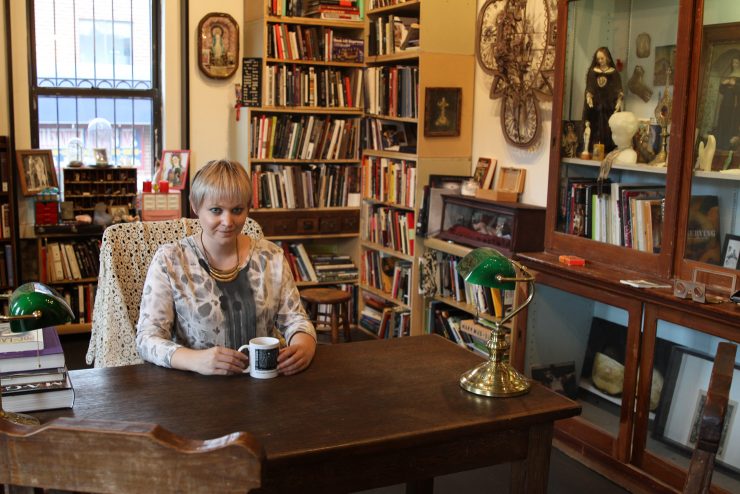
Louise de Winter.
“I always wanted to disrupt an industry, and I wanted it to be death, but I didn’t see how,” said de Winter softly, as we waited for the night’s attendees to populate the taxidermy-and-curio-filled museum shop.
“I battled for depression for a long time,” she continued. “I realized that by working with Death Cafes it’s actually enabled me to live.”
Particularly special to the “social franchise” concept of Death Cafes, in that they need not take place in any specific kind of cafe, are the very visceral ways in which environment can facilitate and support transformative personal experiences. The Death Cafe guidelines—beyond being not-for-profit, and forbidding leading anyone to a conclusion or course of action—dictate that the space in which it takes place need serve “refreshing drinks and nourishing food—and cake!”
“Death for a lot of people, myself included, is quite scary,” said Death Cafe founder Jon Underwood via Skype from London. “And some people are a bit reluctant to talk about it. There’s a fear for some people that speaking about death actually makes it more likely to happen.”
Underwood continued: “The act of eating and drinking is one of consciously nurturing one’s body and sustaining one’s life, so it helps mitigate those kind of fears. If you ask any caterer, they’ll tell you that people eat much much more at a funeral than at a wedding, and it’s for the same kind of reason. We’re all in the same boat, as it were, when it comes to life and death, and when you recognize that, it’s very humanizing. So in providing that tea and cake we’re nurturing each other, we’re giving each other a sort of cuddle with food and drink.”
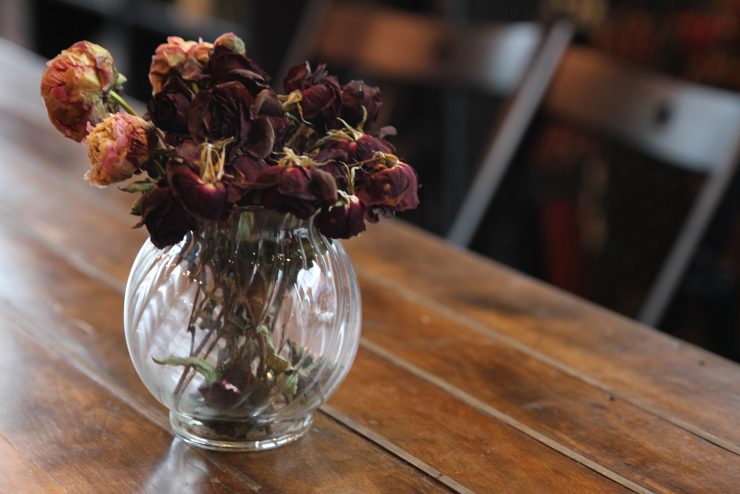
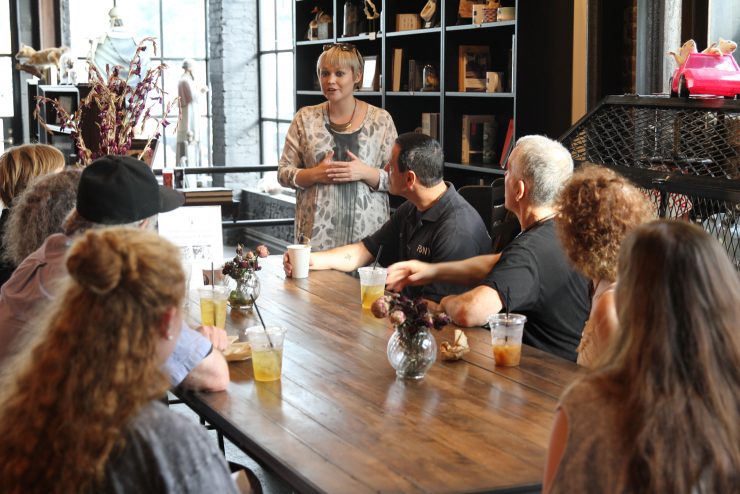
For de Winter, the selection of an appropriately welcoming space is of key importance.
“Because we’re talking about death and it’s a bit taboo, I want it to be in very beautiful, light spaces, nice spaces to hang out,” she said. After this night’s Brooklyn event, de Winter has two uniquely situated Death Cafes slated to take place in England. One will take place at the Bestival music festival in London, headlined by Missy Elliot (the festival, not the Death Cafe). De Winter will facilitate the onsite Death Cafe inside a tipi, along with tea and cake. After that, she’s got one in the farmlands of Essex.
“I don’t really mind where I take it,” said de Winter, “because death belongs to everyone. It doesn’t matter how rich you are, whether you live in the country or live in the city, everyone is dying.”
And while surely much of Death Cafe’s magic lies in its universal portability—anyone, anywhere, can bring one into being—Underwood is in the fundraising stages to create a full-time, bricks-and-mortar Death Cafe located in London.
“It’s kind of off-putting,” Underwood admits. “To some people, this is an absolutely crazy concept, because people hate death. I don’t like death myself.”
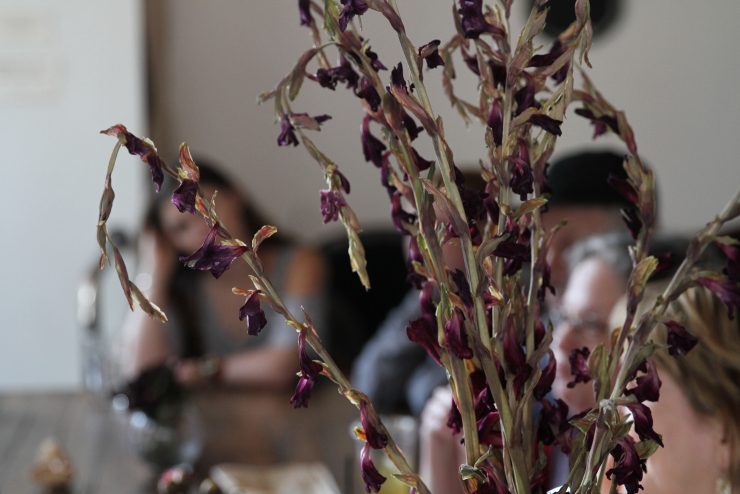
Underwood plans to begin offering investor shares in the prospective cafe in October for the nonprofit entity. If he reaches his funding target, a year-round Death Cafe cafe will move forward.
“Just by having this place which is established specifically to talk about and do work around this kind of subject, I think it’s gonna reassure a lot of people,” says Underwood of the kind of community space he hopes the cafe could provide.
“And I think as well, death’s got a lot of interesting intersections,” he continued. “If you look at death and dying, it affects some groups more than others. In the US, for example, there’s been a lot of police shootings—you’re much more likely to be shot by the police in the US if you’re a black person, so there’s intersection in that example between death and racism. And you can also see the intersections between death and patriarchy, death and homophobia. It will be a place that brings these out, these are really important things to be talked about. I think it’s important that there’s somewhere really high profile, somewhere in central London, to talk about this stuff.
And if folks just want to come in for a cuppa?
“We’re not very proscriptive or didactic, it’s a place to talk about death but we don’t have an agenda necessarily, and we don’t have any answers,” said the founder.
“You want to come in and talk or do some work and read the papers or just relax, that’ll be absolutely fine as well.”
Find a Death Cafe in your area via this link here.
Liz Clayton is the associate editor at Sprudge.com, based in Brooklyn. Read more Liz Clayton on Sprudge.
The post At Death Cafe There’s Cake, But No Easy Answers appeared first on Sprudge.

